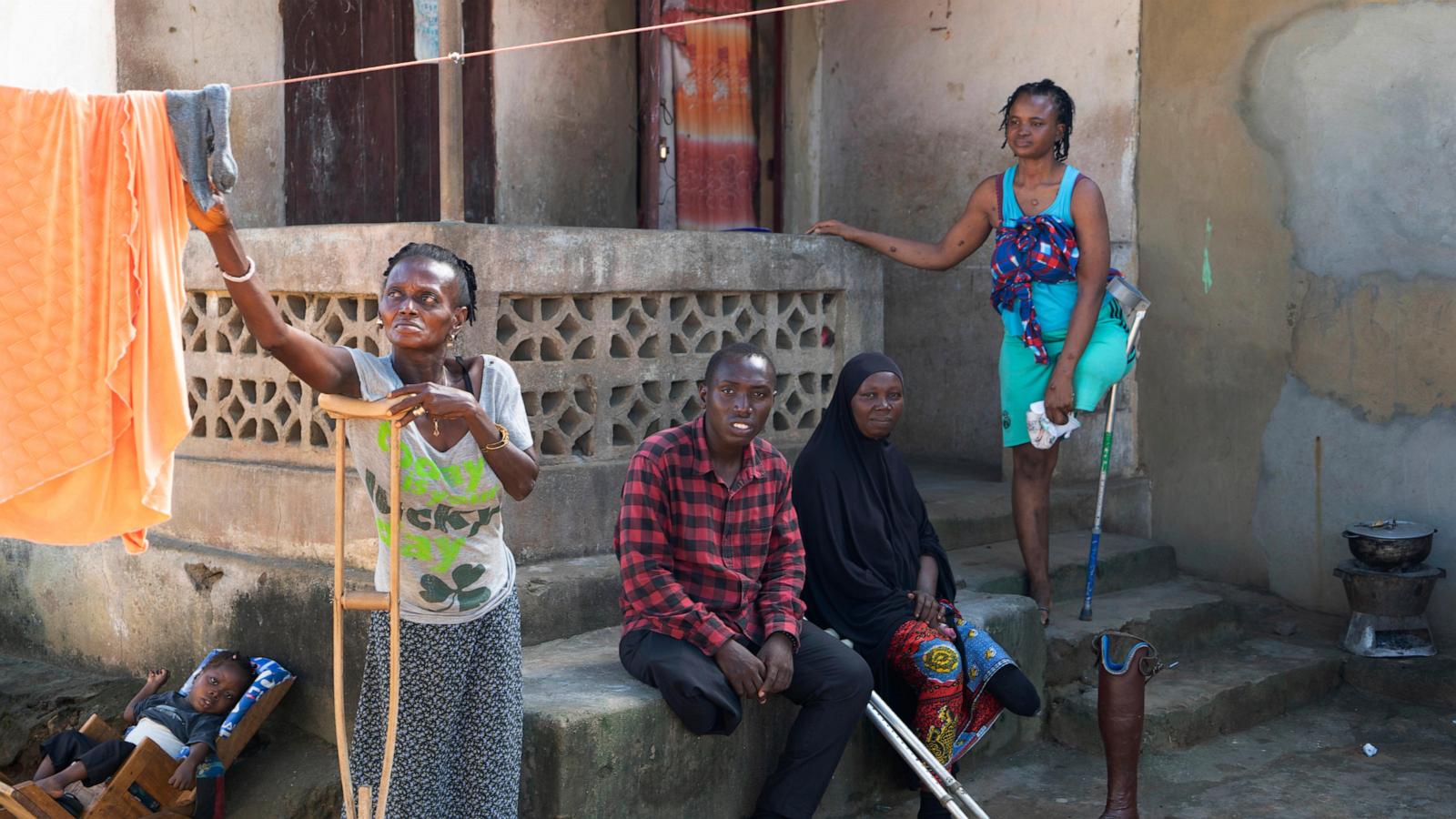Amputee Farmers in Sierra Leone: Overcoming Adversity and Cultivating Hope
In the heart of Sierra Leone, a remarkable initiative is empowering amputees, transforming their lives through farming. This inspiring story showcases resilience, determination, and the power of community in the face of adversity. Discover how a simple idea is helping amputees not just survive, but thrive, defying societal expectations and achieving remarkable success!
Farming on Crutches: A Revolution in Agricultural Inclusion
The "Farming on Crutches" initiative is a beacon of hope for amputees in Sierra Leone. Founded by Mambud Samai, a pastor and farmer himself, this project is providing crucial support and training to individuals who have been left vulnerable and marginalized after years of conflict and societal stigma. With a holistic approach, they aren’t merely teaching farming; they’re cultivating resilience, fostering community, and rebuilding lives shattered by war.
Overcoming Societal Stigma and Embracing Opportunity
Many amputees in Sierra Leone face immense challenges, often rejected by their families and communities. Amputation, frequently a grim reminder of the country's civil war, carries a painful stigma, isolating many to begging and poverty on the streets. However, "Farming on Crutches" is working to rewrite that narrative, offering a path toward self-sufficiency and economic independence. The transformative potential of sustainable agriculture allows amputees to break free from dependence and regain control of their own destinies. This empowering program has transformed the lives of hundreds of amputees in rural Sierra Leone who previously thought they would struggle to survive and care for their families.
Skill Development and Sustainable Practices
The program doesn't just offer basic farming techniques; it promotes sustainable agricultural practices, teaching participants everything from organic fertilizer creation using farm waste, innovative and resilient farming techniques suitable to challenging terrain and resource limitations, to using bamboo for effective and cost-effective fencing. This approach emphasizes self-reliance and environmental consciousness, setting amputees on a path to not only providing for themselves but also contributing to a healthier and more sustainable Sierra Leonean agricultural ecosystem. Each participant is supported by community leaders and volunteers offering holistic and inclusive care; each step of the way ensures the success and independence of every participant.
The Impact of Farming on Crutches
The initiative has demonstrably improved the lives of many amputees in Sierra Leone. For individuals like Lahai Makieu, it’s been transformative, providing not just income, but also community, belonging, and newfound hope. Through the project, Makieu was able to not only sustain himself and his family but found love and purpose while contributing meaningfully to his community.
Success Stories: Inspiring Others to Thrive
The stories of success coming out of this program are both remarkable and motivational. These are tales of people not only surviving, but thriving in their new reality and taking charge of their own futures. One such story, shared earlier by Moustapha Jalloh, a 21-year-old born without a leg, is proof that the opportunities given are not wasted and the drive and innovation brought forth create incredible results: He utilized his harvest surplus to fund computer science training and aspires to become an agricultural engineer; an inspiring example of determination and innovation.
Beyond Farming: A Holistic Approach
The program extends beyond agricultural training. It prioritizes community building, addressing the isolation and stigma many amputees face. The creation of community groups is proving as powerful as the agricultural knowledge it teaches, which leads to building support structures, creating social opportunities and boosting emotional and psychological well-being.
The Road Ahead: Expanding Support and Addressing Challenges
While "Farming on Crutches" has achieved remarkable progress, the scale of the challenge facing Sierra Leone's amputee community is vast. The project desperately needs more support. Government intervention, whether directly or through financial support, is greatly needed to meet the urgent need and scale the existing impact and reach as many amputees as possible across the entire country.
Securing Long-Term Sustainability
To achieve sustainable and broad-scale impact and make sure all participants and members remain thriving, the program needs consistent and long-term investment from Sierra Leone’s government and further international partners. Currently, the majority of funding comes from international partners. More significant support is required, not just to expand its reach but to ensure the initiative’s long-term sustainability, to provide better access to critical agricultural inputs and tools, improved resources to promote skills development, improved healthcare and inclusive support.
Advocating for Policy Changes
Significant policy changes must also be implemented at the government level. These changes are critical for combating the prevalent societal stigma and promoting greater inclusivity. The policies would not just aim to ensure equal access to educational and employment opportunities but also address the long-standing systemic inequality preventing amputees in the nation from receiving reparations and living quality lives. To expand the farming initiative’s reach effectively, policy adjustments are critical. This would result in not only facilitating financial stability and sustainable income streams for amputees and their families but provide amputees with access to basic necessities including housing, access to better medical and prosthetics care.
Take Away Points
- The "Farming on Crutches" initiative showcases the transformative power of community-led projects.
- Sustainable agriculture offers amputees a path to economic independence and social inclusion.
- Overcoming stigma and fostering a sense of belonging is crucial to empowering vulnerable communities.
- Greater investment and policy changes are essential to expanding the program's reach and ensuring its long-term success.




